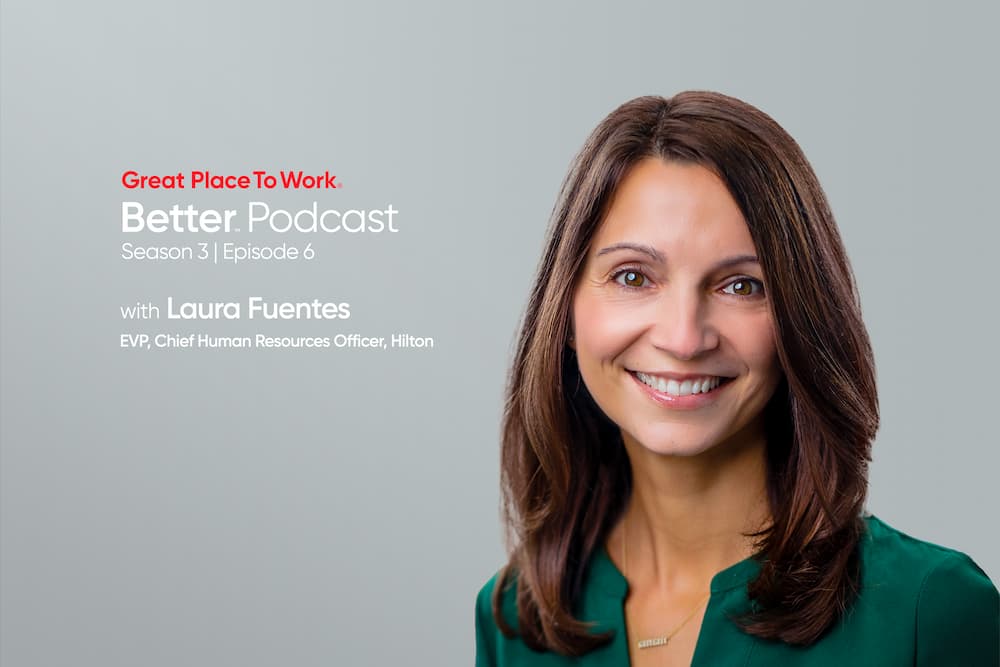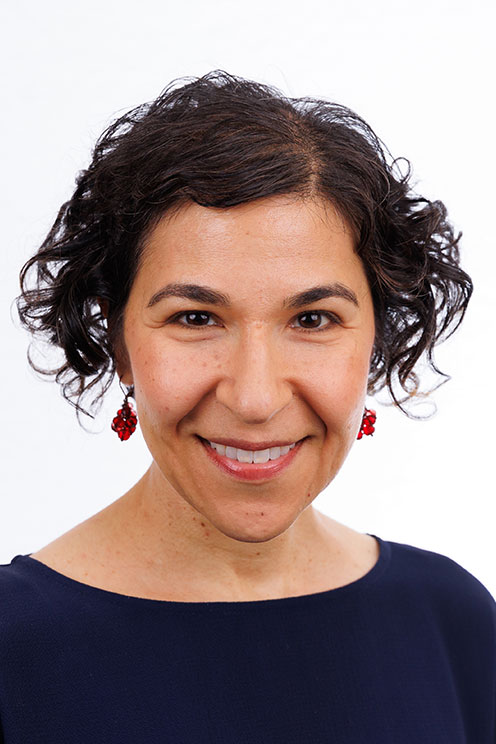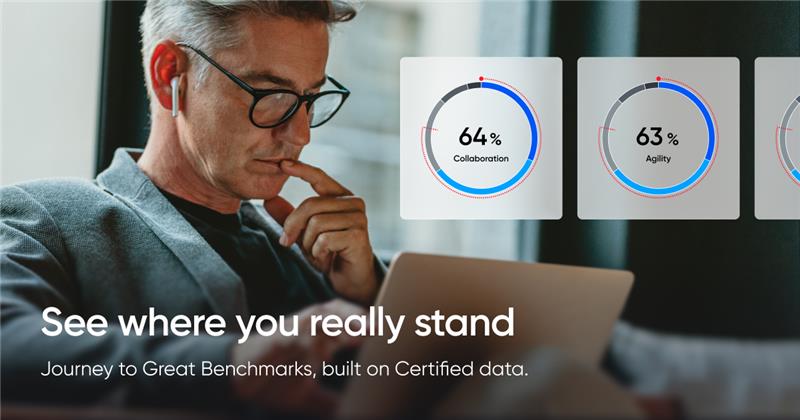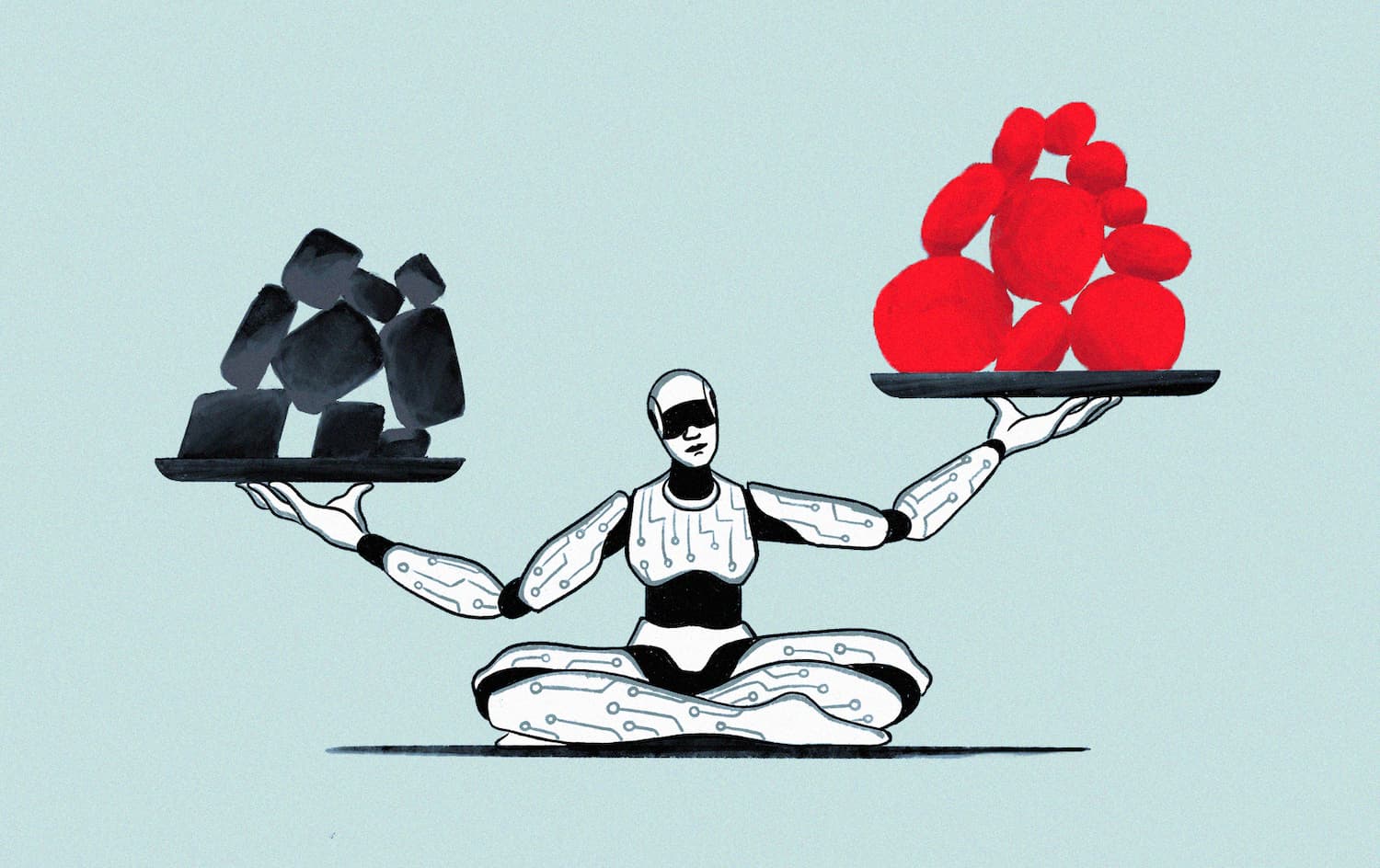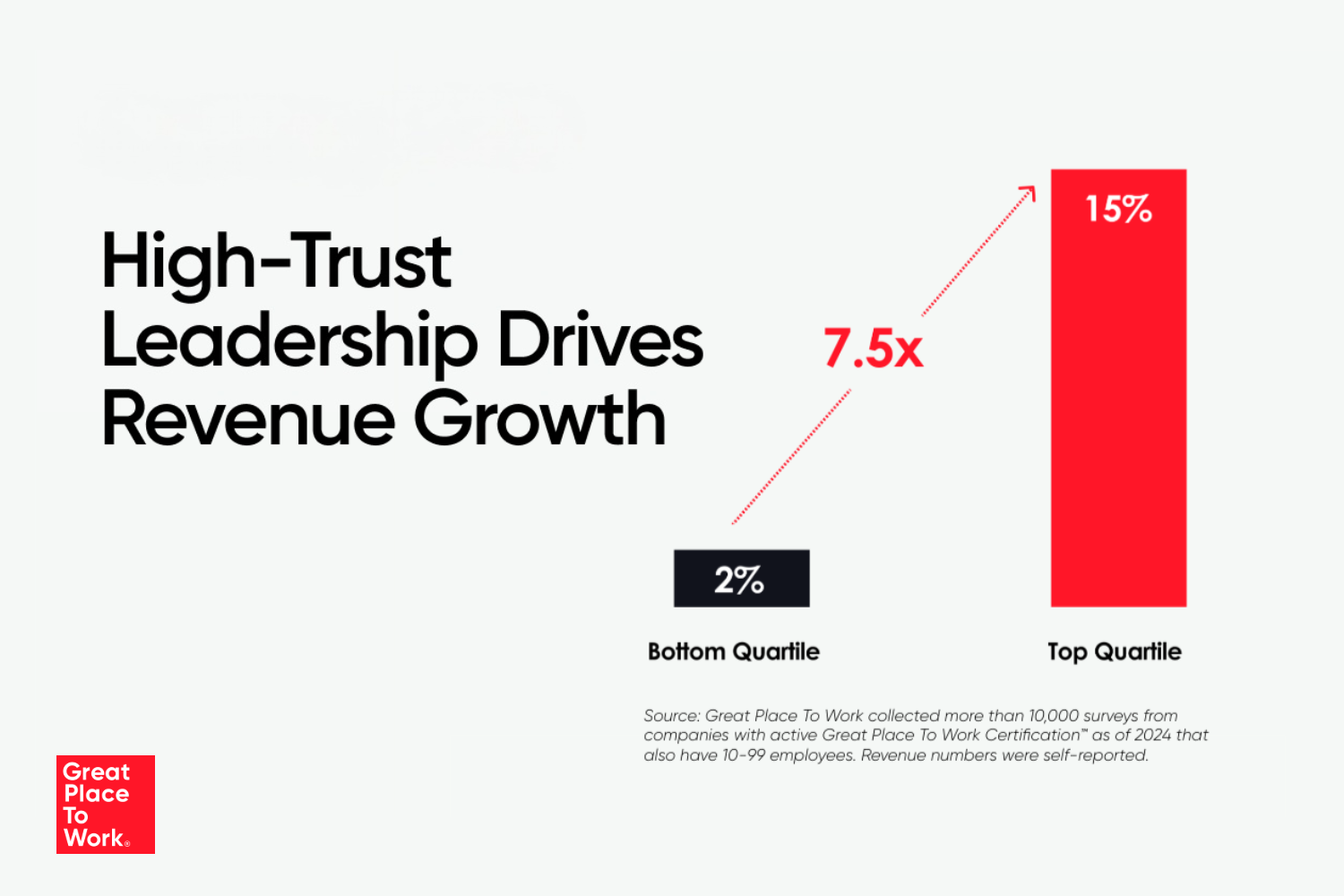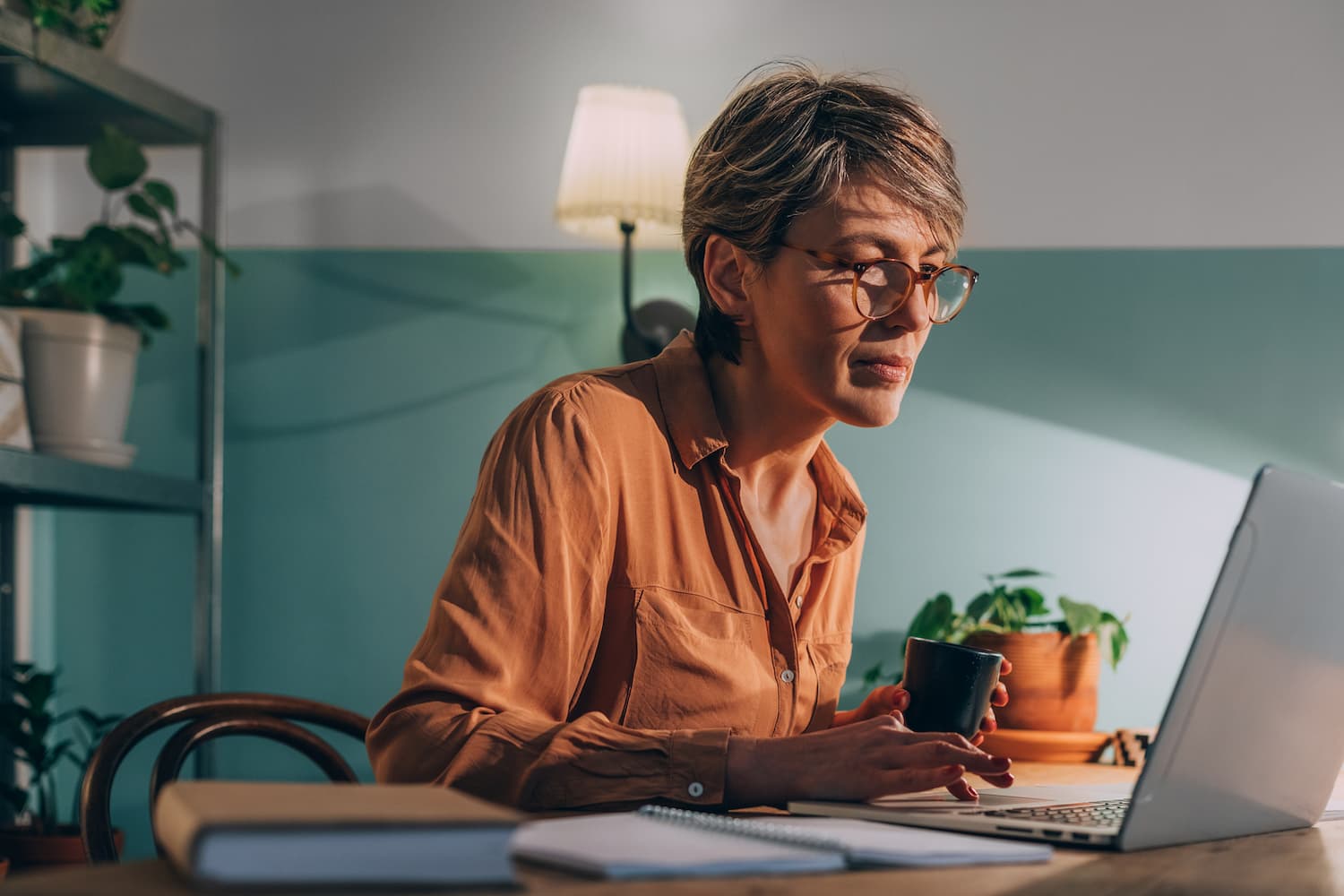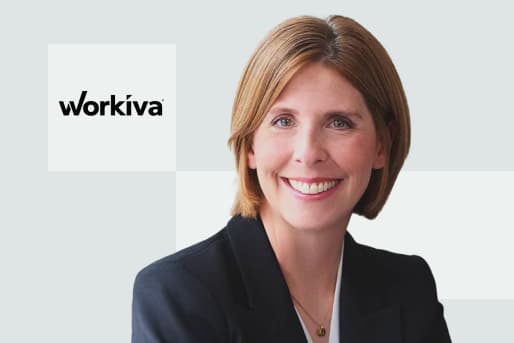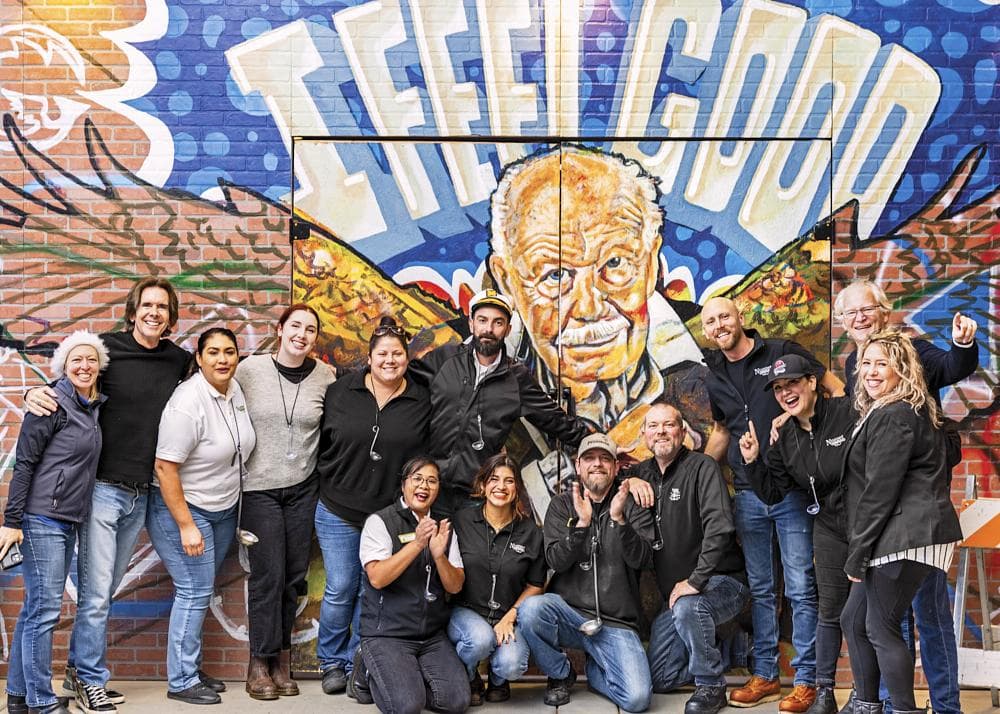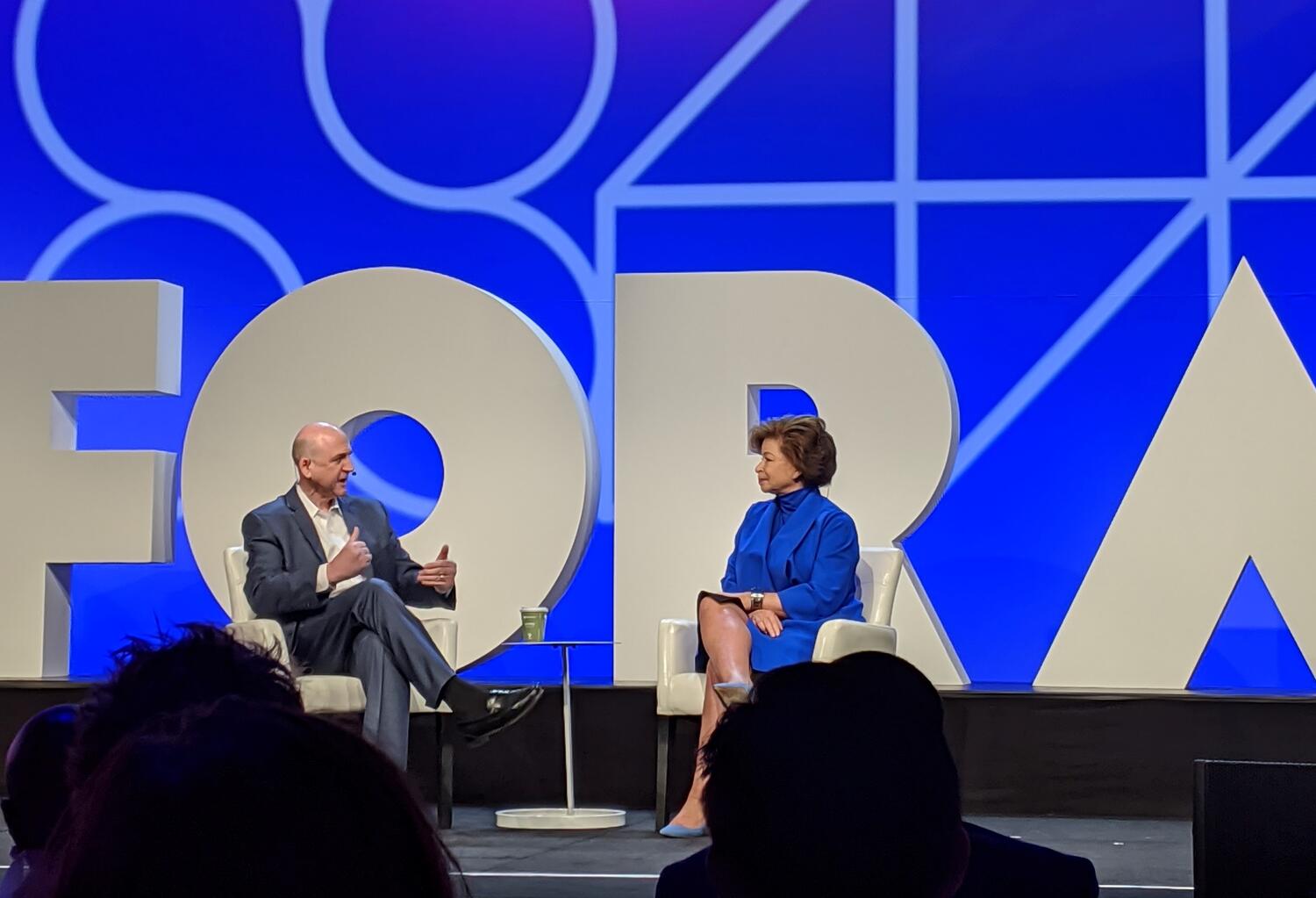Best Workplaces, Employee Experience, Employee Well-being, Leadership & Management, Purpose, Recruiting
“People are looking for a human experience at work. They don't want life to fit into a good job. They want work to fit into a good life.”
On this episode of the Better podcast, Laura Fuentes, executive vice president and chief human resource officer at Hilton, talks about the power of friendship and fun at work, and the essential role they both play.
She shares why she looks for ways to build joy in the workplace, the role values and purpose play in recruitment, and her thoughts on what workers want today.
On the power of friendship and fun
The last couple of years have forced us to do a lot of soul searching. In obviously very important ways, we had to retreat into our bunkers of self-isolation, protection, and survival, but what was lost in all of that is the power of friendship.
As we come out of it now, having permission to once again have fun at work, to bond, build community, and build moments of joy into our workdays and workplaces is really important. A recent Better Up study showed the power of friendships, and they actually had a numeric value to just how many friends would breach that threshold of driving more meaningful engagement.
HR can be a little bit of a lonely job because, of course, we have to sometimes deliver tough messages and coach people through them. For many years of my life, I tried to separate those boundaries, but I will say now that the people that I work with are some of my closest friends.
On the difference between a cultural fit and a cultural contributor
This is a concept I learned from Adam Grant. He cautioned companies when recruiting to guard against seeking only a cultural fit because then you're looking to perpetuate the people you already have. That can create silos and like-minded thinking, and continue to build a more homogeneous culture rather than pivot the thinking to a more nuanced view of cultural contribution.
That's an important nuance, and we try to toggle from fit to contribution: What is missing on this team that I can add by hiring this person?
That being said, we do look for alignment to our values because if someone isn't excited by our purpose, then this isn't the right place for them.
On what workers want today
People are looking for a human experience at work. They don't want a work experience. They don't want life to fit into a good job. They want work to fit into a good life. And that's what we're trying to solve for at Hilton. We want to build a fully human experience at work and tap into the transcendent needs of the workforce.
Subscribe to Better wherever podcasts are available, so you don't miss an episode of season three.
Roula Amire:
Welcome to Better by Great Place To Work, the global authority on workplace culture. I'm your host, Roula Amire, content director at Great Place To Work. On this episode, we speak with Laura Fuentes, executive Vice President and CHRO at Hilton. Well, Laura, welcome to the Better Podcast. Thanks for joining us today. Laura is the Executive Vice President and CHRO of Hilton. Hilton is certainly a familiar name to us at Great Place To Work, with so many appearances on the best workplace lists. I want to start today by talking about the power of friendships at work. You've said the future of work is food, fun and friendship. So why is friendship key to employee engagement? Why is it so important?
Laura Fuentes:
Yeah, it's, I think, an important measure of engagement and bonding of people to their organizations. The last couple of years I think have taught us a lot and people's lives changed fundamentally from the purpose of home to the place of work in their lives, how schools were operating, how we did our groceries. That forced us to do a lot of soul searching and in obviously very important ways, we had to retreat into our bunkers of self-isolation, protection, survival, but I think what was lost in all of that is the power of friendship. And in many ways, companies such as Hilton who went through some really stressful and traumatic times as a result of COVID, we were in the trenches together and it helped us solidify friendships at work and solidify relationships because of that shared trauma.
Roula Amire:
It's a trauma bond on a global scale.
Laura Fuentes:
In many ways, yes, bonded by trauma, but also then as we come out of it now, having permission to once again have fun at work and to bond and to build community and build moments of joy into our work days and workplaces is really important. And I recently read a study that BetterUp conducted and it showed the power of friendships and they actually had a numeric value to just how many friends would really breach that threshold of driving more meaningful engagement.
And I think we all know having a friend that really is a proxy for a safe and trusted partner, a place to troubleshoot your ideas, a place to stretch your comfort zones and your learnings, someone to give you authentic feedback. So it's not just friendship for the sake of a fun time, but actually for the sake of having a more human experience at work and for having a more inclusive experience at work, a healthier experience at work, a more growth oriented experience, and ultimately a more purposeful experience. So yeah, I think friendship and fun are a really important part of how we're going to create those bonds and that engagement.
Roula Amire:
Do you have a work BFF?
Laura Fuentes:
Oh, that's so funny. HR can be a little bit of a lonely job sometimes because of course we have to sometimes deliver the tough messages and coach people through it. And so for many years of my life, I try to separate those boundaries, but I will say now that the people that I work with are some of my closest friends, and that's a little bit courageous for me to say because I still want to maintain that aura of human resources and what we need to do and how we need to deliver those tough messages. But I think at the end of the day, establishing that trust matters. And so I feel really fortunate to work with people that yes, I consider wonderful friends and that I've gone through some of the most meaningful moments of my life and career with.
Roula Amire:
And you've been with Hilton for about nine years?
Laura Fuentes:
Yeah, almost nine years.
Roula Amire:
Is that right? I'm sure that time has just flown by.
Laura Fuentes:
It has. No year has been the same. It's been a time of growth and transformation for our company. I joined right before we went public, so lived through the IPO, our spinoffs of our real estate and timeshare businesses. Clearly extraordinary growth on the culture and people side, thanks to our CEO Chris and our former head of HR, who was my boss, Matt Skylar. So we have been on this journey with a great place to work for many years. And for many years, end of those nine, actually, applying to the list, serving our team members and not quite making the list and having the hard conversations with the Great Place to work team saying, you're doing really well, but you're not in the big leagues. This is what it's going to take.
And continuing to listen and launch programs to support our team members and building that great place to work for all over those nine years, which ultimately in a few years ago culminated in some extraordinary recognition that we continue to celebrate around the world. So it's been a journey. It's been amazing and transformative, and I am so excited about what lies ahead too, especially as we come out of COVID and continue to drive the recovery.
Roula Amire:
Hilton is number two this year among the 100 bests.
Laura Fuentes:
Sp proud, so excited.
Roula Amire:
That's the fruits of your labor of all those listening sessions and hard conversations. That's what it can look like.
Laura Fuentes:
Yeah, I mean truly, I put this at the feet of our leaders, our general managers, our teamwork at hotels. They're doing the hard work and building this culture that we're also proud to be a part of. And I'm really particularly proud of the fact that in the last two years during COVID, we've actually continued to make dozens of Great Place To Work certifications and awards around the world. And so at a time when our team members were certainly facing unimaginable hardships and challenges, both from the shuttering of our hotels to the reopening and the insane demand that we now have for travel, and yet they're telling us that Hilton is still a great place to work, that they feel recognized, taken care of.
Our scores have gone up during COVID as far as Great Place To Work engagement, and that is incredible. Right? I think that is and speaks to some of the bonds that were formed that now feel sacred and beyond friendship, that we're on this calling and this mission and this purpose together. And that is hugely inspirational for all of us around the world and Great Place To Work have been great partners to us on this journey, especially over the last couple of years.
Roula Amire:
So let's talk about that. Let get into the pandemic and what happened to your industry because your experience is not that of other hospitality companies. We did a recent market survey in July 22 of this year, and we found that one in six employees at a typical average workplace in hospitality are planning to leave their jobs by the end of the year. So that's about 62% are recruitable, and most of them, the overwhelming majority, 85%, said they're looking for a great workplace, which is great news for great companies like Hilton of course.
When we dig a bit more, we see that less than half of those employees at the average companies feel that their work has special meaning, that what they do is more than just a job, which is very different when we look at how employees feel at great and best work places, which is about 80%. So that's nearly double. We know purpose drives retention, and so hospitality has to double down on purpose if you want to keep your employees or win back those who left during the pandemic.
So I'm curious to hear what guidance, what would you share with other leaders to help them tie purpose to employee jobs? Because many leaders, they don't know how to cultivate purpose for their people. They don't think they can do that for all people and you do that very well at Hilton.
Laura Fuentes:
Yeah, so we were fortunate. We're over 100 years old and our founder, Conrad Hilton, started this company on the noble premise and promise that we would fill the earth with the light and warmth of hospitality. That has been our true north, our guiding star for over 100 years. We also have a set of values that are the first thing that team members learn when they join us. They're memorable, they're simple, and they're very powerful. So they spell out actually Hilton, H-I-L-T-O-N. Our first value is hospitality, perhaps unsurprisingly, and we embed them in every aspect of our team member's experience with us. So we wanted to start with something scalable, simple, powerful and memorable. So we came up with the values in that regard, and then we embed them in our storytelling when we recruit. We are looking for people who will be cultural contributors, not necessarily a cultural fit because we want people to bring different backgrounds. So we always look for that cultural contribution, but we do look for alignment to our values.
Roula Amire:
Can I just ask you a question about that? What's the difference between a cultural fit and someone who can contribute to the culture?
Laura Fuentes:
Yeah. This is a concept I learned from Adam Grant and some of his really powerful writing, big Adam nerd in this department of ours, but he cautioned companies in particular when recruiting to guard against seeking only cultural fit because then you're looking to perpetuate the people you already have there and that can create silos and like-minded thinking and continue to build a more homogeneous culture, rather to pivot the thinking a little bit to a more nuanced view of cultural contribution. What is missing on this team that I can add by hiring this person? Right? So I think that's a really important nuance and we try to toggle from fit to contribution.
But that being said, we do look for alignment to our values because if someone isn't bought in and excited by the purpose to fill the earth with a light and warmth of hospitality, but our values of hospitality, integrity, leadership, teamwork, ownership and now, then this isn't the right place for you and that's okay. I want all humans to find their righteous place in the world of work, and we are seeking individuals who will be motivated and inspired by our values because by the way, we will hire based on that. We reward, we assess based on performance against our values, we celebrate. We're about to share the stories of our [inaudible] Light and Warmth Award winners globally who have extraordinary stories of living our values.
So we look for diversity of background, experience and our hiring cultural contribution, but we will always look for and celebrate alignment to those values and find people who are as passionate about them as we are. So I'd say the advice to their leaders, if I could humbly offer, would be make sure that your values are memorable, scalable, simple, that you are clear in how you communicate and how you leverage and bring it to life, because otherwise values, purpose become words on a wall that don't actually live up in the moments that matter. And whether that be when you're assessing, rewarding, promoting people in times of crisis, right?
Over the last couple of years, yeah, our industry and our company took a huge hit in those early days of COVID, and yet our CEO, Chris Insetta, wanted us to be a part of the solution and help communities and in particular healthcare workers who were so heroically saving lives around the world. And so we donated a million room nights and he challenged us to do this at the peak point of the crisis. Those were our values in action, right? Hospitality, even when we are fighting for survival. So I think it's the tough moments that reveal who you are and bringing it to life in those meaningful ways is what inspires people.
Roula Amire:
I love the difference you pointed out from Adam Grant. That's right out of the Adam Grant playbook of cultural fit and-
Laura Fuentes:
Contribution.
Roula Amire:
Thank you, and contribution, because I think that just spills into life, right? You don't just want to surround yourself with this like-minded, same people. You're not going to learn, you're not going to grow and so that dips in. We should have this separation between work and life. That kind of thinking and growth should happen in the workplace as well.
Laura Fuentes:
Well, it's funny that you say that because I think people will ask. Well, so much has changed in the world of work and people's mindsets relative to work over the last couple of years. And I do think COVID accelerated trends, right? I mean, we were all locked up in our houses and we had to examine, does this homework ... is school working? Is work working? Am I happy?
Roula Amire:
Yeah.
Laura Fuentes:
All the soul searching. Exactly.
Roula Amire:
Yeah.
Laura Fuentes:
But I think what people were basically telling us beyond the click bait that we read and hear about, quietly quitting, great resignation, everything in between, is that they are looking for a human experience at work. They don't want a work experience, an employee experience. They don't want life to fit into a good job. They want work to fit into a good life. And that's what we're trying to solve for at Hilton, is to build that fully human experience at work and to tap into not the trends of work, but the transcendent needs of the workforce.
Roula Amire:
So let's switch gears a bit and get to know you a little bit better. You've been in the HR space for many years. What is the best piece of career advice you'd go back and give your younger self?
Laura Fuentes:
I would probably tell myself to be braver and bolder. Early in my career, I think I was more deferential, more cautious in my voice, in my actions, in my networking, in my outreach. I always felt like, well, who am I to reach out to so-and-so, or who am I to speak up now? And I would seek to have all my action and knowledge really buttoned up before I would lean into something. And so to trust my instincts,, to be a little bit bolder, a little bit braver, a little bit more active in my networking. And to do that without needing to have permission or some title or level and just for the sake of what I've always had, which is a very curious mind. But I felt like maybe it wasn't my place always to lean in with courage and boldness. So I would say to have a little more fun with that earlier in my career.
Roula Amire:
You mentioned Adam Grant. We've talked about Adam Grant today. I discovered him shortly before COVID, so during COVID I discovered podcasts as many people have. So I'm just curious, do you listen to the Work-Life podcast and if you want to share a favorite podcast or book or some source of inspiration for fellow leaders or any recommendations you have for us?
Laura Fuentes:
Yeah, I certainly listened to Adam Grant's podcast, and this was not a shameless plug, but we've partnered with him on that podcast and been a sponsor for a few years. So you'll hear embedded in his ads some stories about Hilton and our team members, including this season. And we have a team member, actually-
Roula Amire:
I love the ads-
Laura Fuentes:
The ads are amazing. Right?
Roula Amire:
The [inaudible] podcast, you just fast forward, but on Work Life, they're storytelling.
Laura Fuentes:
They're storytelling. Adam's done a brilliant job there, and we're so proud to showcase our team members. So in this season, we're actually showcasing a team member from this property in Orlando who is an amazing ambassador for our culture and brings joy and fun into work tying back to what we were talking about at the beginning. And he brings dance into what he does and how he serves our guests, and that inspires both our fellow team members and guests. So I'll let you listen to the story itself, but that is always a regular on my podcast rotation.
I love to listen in a multi-format and multi-channel way. So Adam, I listen to. I love that we can do Hard Things podcast by Glennon and Abby Wambach and Sister. I am a voracious reader, so I try to mix fiction, non-fiction poetry, and just always staying active as a reader. There's a current book on my night stand, which I haven't opened yet, but I'm really intrigued by which is called What We Owe the Future. And just that lens of what we do today impacts the ancestors we become, so I'm always curious. Always-
Roula Amire:
Is it an actual book?
Laura Fuentes:
Yeah, it is. Yeah.
Roula Amire:
Do you do Kindle? Do you do audiobooks? Are you the old fashioned-
Laura Fuentes:
I'm old fashioned. In fact, if you see, as we all know, our backgrounds over COVID now that we're on Zoom, I've color coded my books. They bring me a lot of joy. I'm a book nerd and I like to have the physical books. I like to gift books, buy books, turn the page, sit with them.
Roula Amire:
Yeah.
Laura Fuentes:
So I'm very much an old school book reader.
Roula Amire:
When do you have time to read? At night, before you-
Laura Fuentes:
At night, but it's one of the things I do to recharge. So I consider myself a bit of an ambivert, so I find energy out of moments of solitude and reading is a big part of that for me. And also obviously moments of social connection. But I read at night, I read when I'm on vacation. I love nothing more than a rainy weekend, honestly, where everything gets canceled and I can curl up with a book. I know, I'm that kind of reader.
Roula Amire:
Will you read on the plane?
Laura Fuentes:
I do. I try to read on the plane, although I leverage plane time for a little bit of meditation and quiet time to unplug my brain. So depending on the length of the flight, I've recently been to Singapore and London, so definitely had some time to kill there. I may just truly unplug and try to meditate for a couple of hours and just unwind my brain or I'll read. Yes.
Roula Amire:
Okay. So on short trips on the plane, your laptop doesn't come out?
Laura Fuentes:
Not much, to be honest, and this is where I go analog again. I'll print things to read, and so I'll try to catch up on things or prepare for whatever meeting I'm joining, but I tend not to-
Roula Amire:
Digital detox.
Laura Fuentes:
Yeah, it is. It's a digital detox and I'm always a little bit paranoid about people peeking over your screen.
Roula Amire:
Yeah. Yeah. Yeah.
Laura Fuentes:
So it's a digital detox and I go analog. Absolutely. And listen, I'm not ashamed to admit that I'll buy some of the magazines on the way to the plane and leverage that to unwind a bit.
Roula Amire:
Will one of those be People Magazine? Are you above entertainment news?
Laura Fuentes:
Oh, absolutely not. Yeah, a regular reader of people. Yep.
Roula Amire:
Who's the most important person you talk to every day? It can be personally, professionally, or both.
Laura Fuentes:
Yeah. My husband for sure. I feel like we're a great team. He's my friend, the love of my life, and we need to stay really closely connected, especially when we're both juggling careers, travel to make sure that our kids, our dog, everything's moving in the right direction. And he, beyond the logistics, of course, just helps me stay grounded and connected to what matters, so my family. Beyond that, I live on a different continent from my parents. I have one kid in college. I'm always trying to connect with my siblings, and that's really important to me.
But then I'll say on the work side and just intellectual growth and curiosity side, I try to connect every day with someone who's going to challenge my thinking, push me to consider new perspective. And that is very often my boss, my colleagues, the team members at Hilton, my team, but just making sure that every day there's a challenge born out of a human connection. So I do seek that out and try to push myself to be in those situations as someone who isn't necessarily an extrovert, but that I have a human connection with someone who's going to make me think about something in a new way.
Roula Amire:
You mentioned detoxing on the plane and taking time, and you mentioned meditation, reading a book at night, recharging. What's one way you create a sense of wellbeing for yourself on a day-to-day basis? Is there something essential you need every day? For me, during the COVID until now, starting my day, seeing the sun, walking, movement, even if it's 10 minutes or five minutes or half an hour, I try and get a walk in. I like meditation and other things, but if there's no time, I have to have some movement before I sit and start. What's your essential ingredient?
Laura Fuentes:
A good day will always have a walk with my husband and dog. I read somewhere that even just looking at the sky for 10 minutes [inaudible] same research we both looked at, that that just-
Roula Amire:
Is it circadian rhythm?
Laura Fuentes:
Yeah. I try to look up and take three deep breaths, and there are days honestly where I don't get out as much, but just even a five-minute walk, taking a deep breath outside and looking up at the sky can be a three-minute intervention and it helps. I also like to make my bed every day. That gives me a sense of calm and order. Honestly, I'm a big homebody and I feel like, okay, if I start doing one thing right, it sets the tone for the day.
Roula Amire:
Yes, you've had some success.
Laura Fuentes:
Exactly.
Roula Amire:
If I don't get my walk-in, I'm off. The day just isn't quite right. What is the biggest challenge you've had to overcome in your career, or a challenge?
Laura Fuentes:
I would say the challenge that we faced over the last couple of years, in particular as COVID hit at Hilton, the hospitality industry, to try to take care of our team members, to step up and be an effective, compassionate leader to help the survival of our company in really unprecedented times where there was no playbook and we were all so worried for our own lives, our own families, the world we lived in. And to have to do some of the most heartbreaking and difficult work that HR can do while being fully remote in an industry that was under assault, that was incredibly challenging. And I say this with the deep appreciation and gratitude of the ways in which our Hilton team stepped up, our leaders, our team members, the HR function, but all of the functions across the company who worked together. It was both the hardest time of, I think my career, but in so many ways the most fulfilling and rewarding.
And it's hard to say, oh, that's the proudest moment, some of the proudest work that I've done in Hr, but it was because in that moment of unprecedented trauma, the team that I was a part of just did some heroic work. And we heard through the testimonials of the team members even that we had to lay off that they felt so looked after and taken care of in those times because we tried to insert as much humanity and care and heart into what was a heartbreaking moment. So I would say those couple of years, yeah, hard and proud, and there were days that ended in tears and hugs and deep sense of commitment and grit and perseverance to keep fighting for our team members and our company. So I was really proud to be a part of that.
Roula Amire:
Laura, thank you so much for being here with us. We appreciate you taking the time today.
Laura Fuentes:
Thank you so much for having me. It's a true pleasure.
Roula Amire:
Thank you for listening to this episode of Better. You can stream this and previous episodes wherever podcasts are available.


